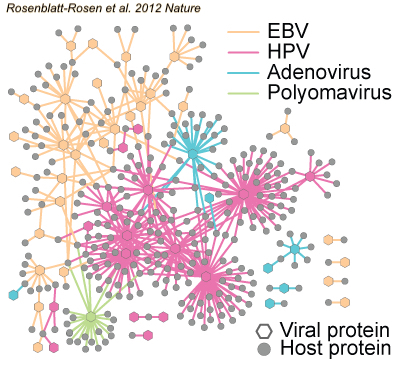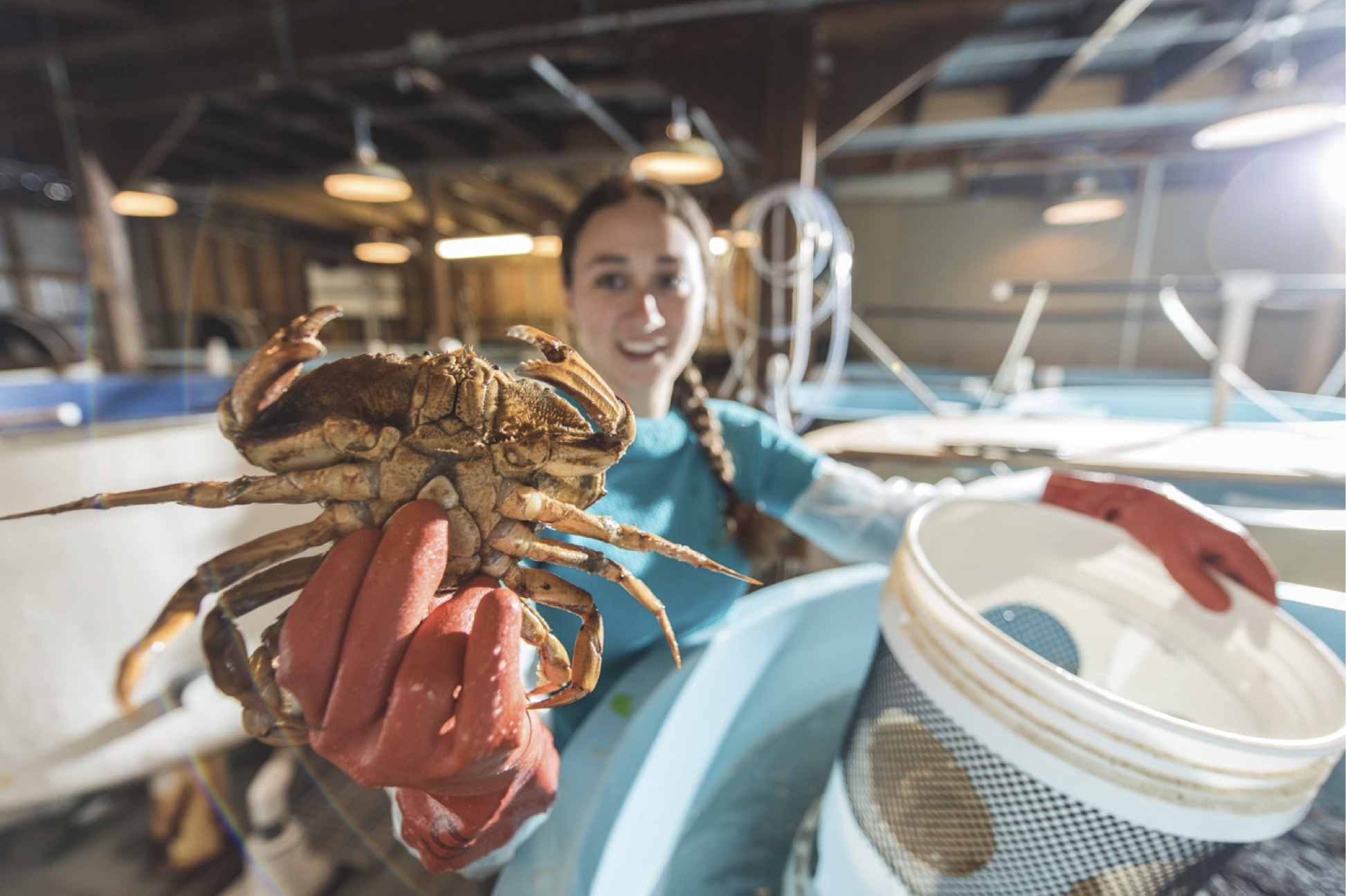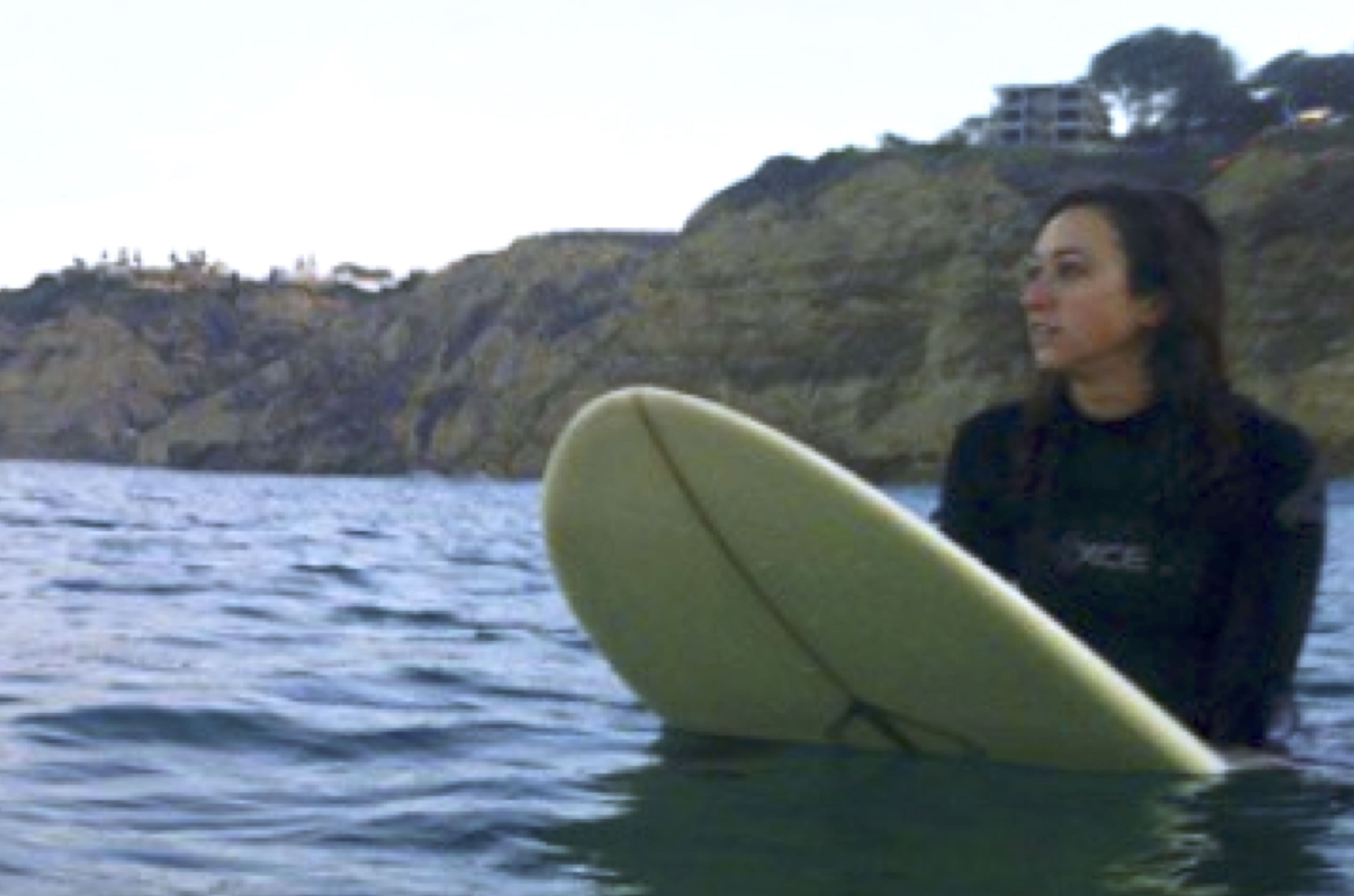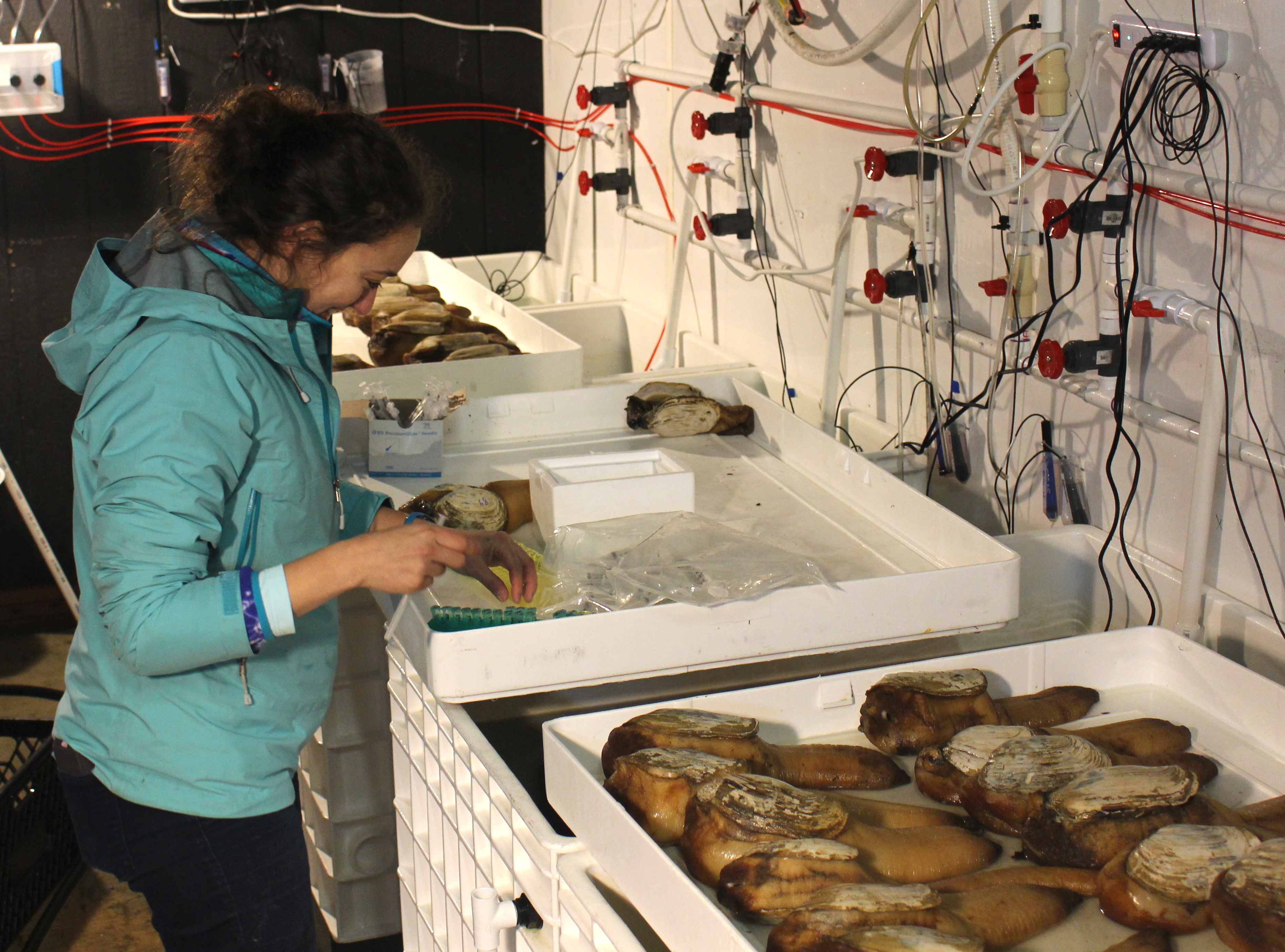Profiles
Current Research
I am broadly interested in leveraging genomics technologies to improve how aquatic animal health is monitored. With climate change progression and the emergence of new diseases, aquatic animals are facing increasing health challenges in the wild and in aquaculture settings. Efforts to restore and conserve wild populations as well as maintain aquaculture populations to meet the growing food demands worldwide all require tools to assess animal health. Genomics technologies have the power to survey millions of molecules simultaneously and identify particular molecular markers that can indicate good health or poor health. These markers can then be used to develop diagnostic tests to improve how aquatic animal health is monitored in the field. Towards this my research at GMGI involves a combination of genomic approaches and innovative molecular diagnostic assay development.
Background
Born and raised in Massachusetts, I spent 10 years on the West Coast, and am now back to my New England roots.

After completing my B.S. in 2010 at Simmons College in Boston, I continued as a Research Technician in Marc Vidal’s lab at the Center for Cancer Systems Biology (CCSB), Dana Farber Cancer Institute in Boston where I became fascinated with big data and how network biology reveals connections between molecules and an individual’s characteristics and physical state.

In 2011, I joined Joe Ecker’s Genomic Analysis Lab at the Salk Institute in San Diego as a Research Assistant and was inspired to pursue a Ph.D. while developing a new high throughput assay for mapping protein-protein interactions (CrY2H-seq). I began the UC San Diego Biological Sciences Ph.D. program in 2013 where I continued in Joe Ecker’s lab now focused on applying CrY2H-seq to understanding protein interactions that directly contribute to gene regulation in the model plant Arabidopsis thaliana.

Towards the end of the program, I became interested in how systems biology could be used in applied research and completed a year-long NSF Graduate Research Internship at NOAA’s Northwest Fishery Science Center using omics technolgoies to investigate how physiology and genetics in marine invertebrates are impacted by ocean acidification.

I returned to San Diego in the summer of 2018 to complete my dissertation “High resolution molecular networks from novel ‘omics’ approaches elucidate survival strategies in organisms from land to sea”, and received my Ph.D. Watch my defense here
In the Fall of 2018, I began as a Postdoctoral Researcher in Steven Roberts’ lab in the School of Aquatic and Fishery Sciences at University of Washington where I studied how the environment impacts marine animals at the physiological and molecular systems level. I conducted experiments that simulated various ocean conditions and used omics technologies (like epigenomics, proteomics, and metabolomics) in combination with physiological assays to measure animal response.
In March of 2021, I started a position as a Research Scientist at Gloucester Marine Genomics Institute. My research involved developing rapid genetic diagnostics for shrimp and harmful algae, and integrating genomic data for resilience biomarker discovery in shellfish.
Outside of research, I enjoy all outdoor activities from co-ed team sports to trail running, hiking, backpacking, camping, fly-fishing, climbing, and snowboarding with friends, family, and my dog. Please reach out if you’d like to connect!






